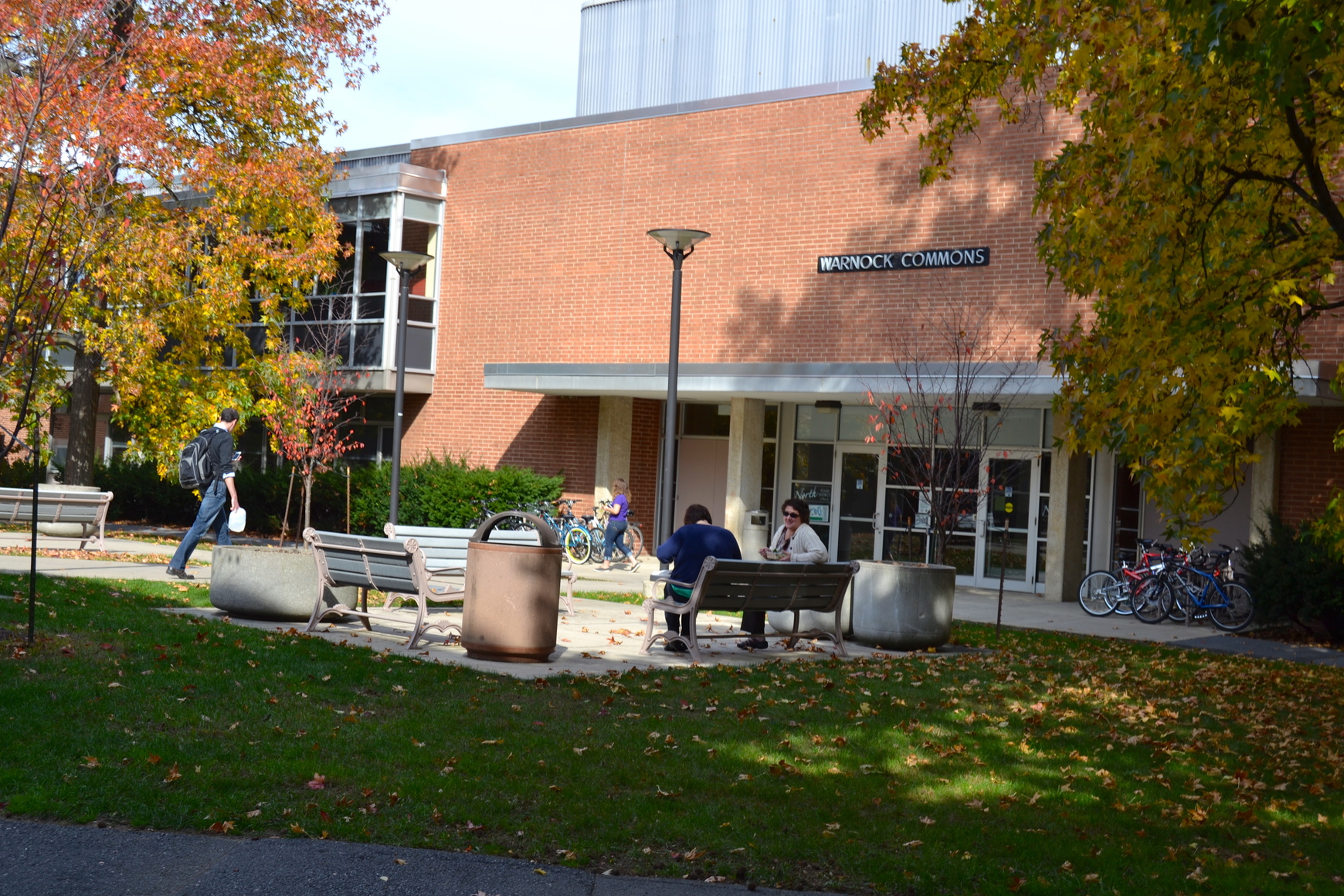IST Students Present Research On Sex Trafficking To Homeland Security Officials

Four undergraduate IST students presented their two-year study on human trafficking to Homeland Security officials in Washington, D.C. Penn State was one of only three universities in the country to present its findings on this modern form of human slavery. The team was made up of seniors Jesse Altmire and Aubree Biggs, and juniors Andrea Forster and Addie Jackson. Dr. Peter Forster, Dr. Nick Giacobe, and Dr. Ed Glantz were the group’s supervisors.
Over the last two years, the team worked on developing methods to better identify sex trafficking while simultaneously raising awareness. It turned its attention this year to online sex trafficking, and used data from Backpage.com, a Craigslist of sorts, to analyze potential sexual advertisements.
In large part due to the team’s studies, the Department of Homeland Security named Penn State a pilot school along with George Mason and the University of Oklahoma in its Blue Campaign, an effort to curb human trafficking.
Its origins lie in a request from the Pennsylvania Criminal Intelligence Center of the Pennsylvania State Police to help better understand sex trafficking in the commonwealth. Although it’s not a widely known issue, Backpage has generated $31.4 million dollars annually in online sexual services from this modern form of human slavery.
To combat the problem, the team developed a tool that automates the process of collecting data from Backpage in an attempt to prohibit the viewing of child pornography.
“This tool allows analysts to retrieve groups of classifieds sharing common attributes like phone number and location,” Altmire said.
The tool essentially pools data to pinpoint specific sites that could host criminal activity. It allowed the researchers to analyze around 500,000 advertisements on Backpage.
“This research project is the epitome of what we do in IST, which is to use technology to better understand information,” Forster said in a press release. “But in this case, that only takes you so far; you need to introduce the human factor to begin to delve into this issue.”
In 2014, Pennsylvania was recognized as the most improved state in human sex trafficking legislation. In most instances, victims don’t receive proper care. Altmire believes the most important way to end this problem is by increasing public awareness.
That’s when the Department of Homeland Security came calling, and asked Penn State’s College of IST to be a pilot school in its Blue Campaign. In addition to working to decrease the crime, the Blue Campaign also strives to train law enforcement officials to protect victims and punish perpetrators.
The undergraduate student team presented its findings to law enforcement, volunteers, and government officials at a Blue Campaign event at the Department of Homeland Security.
“The audience was very positive about the presentation and a number of organizations and groups expressed interest in accessing our data, receiving our tool, and learning more about our methodology,” Altmire said.
Now, IST students are working on a collaboration with the College of Communications to raise awareness of sex trafficking in the State College community. It’s a beneficial process not just to the victims, but to the researchers as well.
“When I came to college I really wanted to be able to do something that I thought made an actual difference,” Altmire said in a press release. “To be able to go out and do research and build tools and technologies to aid law enforcement in combating this problem really means a lot to me.”
Photo: Jesse Altmire
Your ad blocker is on.
Please choose an option below.
Purchase a Subscription!




